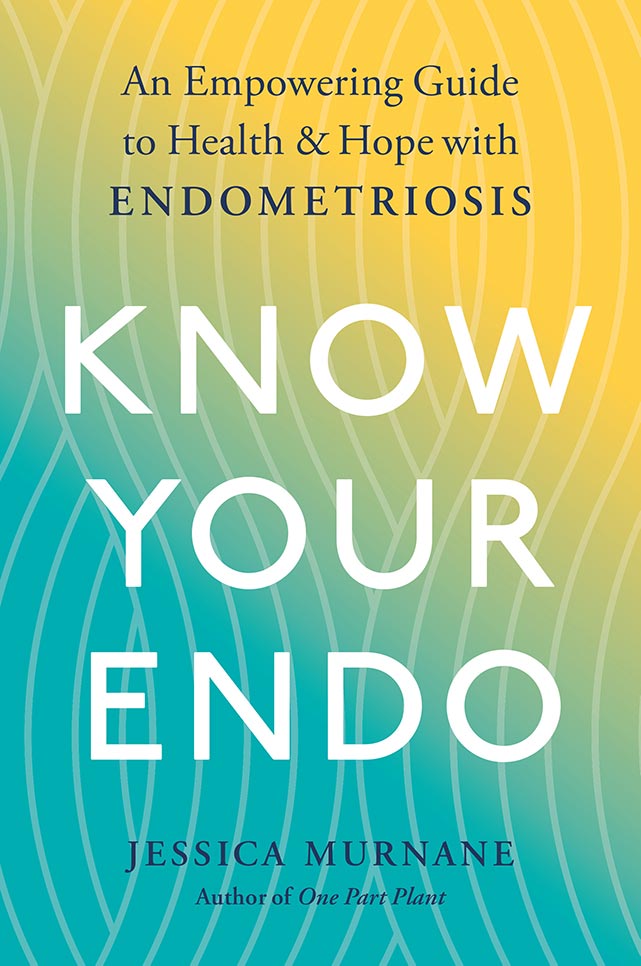A Conversation with “Know Your Endo” Author
Jessica Murnane shares about her own journey with endo and why she felt compelled to write this new book.
When Jessica Murnane was diagnosed with endometriosis at the age of 28, she was surprised at the amount of misinformation she found on her journey to managing her endometriosis. The more she researched endo, the more she longed for not just information, but connection. Guidance.
“I know how lonely and dark it can be to live with endo and how confusing it can be,” she says. From that place, she set out to create a book that included all the resources she had found helpful, and she wanted to share her own experiences to help alleviate that sense of isolation that so many women with endometriosis feel.
The result is the book “Know Your Endo,” published in April 2021. “This book is a handy guide with info from what I call the ‘dream team’ - the best doctors, pelvic floor experts, and patient advocates,” she says.
In the book, you also interview a lot of women with endo. What was the reason for doing that?
"I sent out a survey the Know Your Endo community to get a scope of people’s experiences. I asked what age they were diagnosed, their job, different aspects of their lifestyle, and then interviewed over two dozen of them. In the book, you’ll read stories from television producer, a mother of five, an actress, a yoga instructor, and a truck driver [among many others]. I think it’s important to show that endo does not just affect one type of person."
Of the tools you describe in the book, which one would you say has been most helpful in your own life?
"Before writing the book, I would have said a whole foods low-inflammatory diet. While I don’t think there is one “endo diet” for everyone, food has such a significant impact on how I manage my symptoms."
OK, so what about after you wrote the book?
"When writing the ‘movement’ chapter, I found it to be equally important as the food tool. Talking to the experts for that chapter helped me reshape my thinking about movement. I looked at movement as this ‘all or nothing’ thing. Now, I ask: ‘What can I do today?’ Maybe it is more foam rolling or more gentle movements over high-intensity workout classes. The studies and interviews I share in this chapter really changed how I look at movement and hoping it does the same for others!"
Why was it important to you to have this book also be somewhat of your own memoir?
"We often connect so many of the symptoms of this diagnosis to our self-worth and personal identity. Because of this, there can be a lot of shame connected to endo. Take a symptom like fatigue. Before someone knows that fatigue is a symptom, they may have thought that they were just lazy or unmotivated. I think that what a lot of us with endo want is a first-person account from someone who knows what all these experiences are like. We still want all the medical guidance, but it is also nice to hear about how it impacts all aspects of life... from someone who's been through it. This can foster more conversations—conversations that help people feel less alone and help release that shame."
The conversations are so important. Are you seeing them happening more?
"It is so exciting to see younger girls making Tik-Toks all about periods and period products. When I was growing up, the message was and is that you were not supposed to talk about tampons and periods. I am hoping that my book will help a reader be more open to talking to their friends, and their mother or grandma, who may have gone her whole life going undiagnosed. There was very little advocacy work for that generation. And yet, this is something that happens to an estimated 176 million women worldwide. We have to be talking about this."

Join the conversation